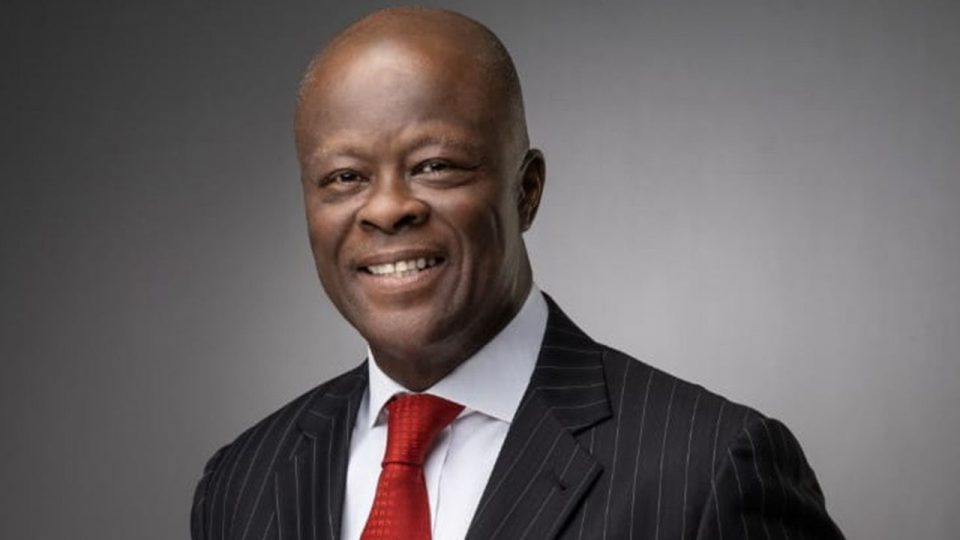Photo caption: Minister of Finance and Coordinating Minister for the Economy, Olawale Edun
Foreign Direct Investments into Nigeria fell by $19bn in 10 years, from $22.7bn in 2014 to $3.7bn in 2023, it has been learnt.
This was contained in a presentation made by the Minister of Finance and Coordinating Minister of the Economy, Wale Edun, to top business leaders in Lagos recently.
At the presentation, which was made before leading business executives at the Lagos Business School Breakfast Club, the minister spoke about the key issues confronting the economy and what the government was doing about it.
The Lagos Business School Breakfast Club provides an avenue for C-suite executives to gain access to high-quality intelligence about the operating business environment, without expending much of their most scarce resource- time.
Scheduled for the first Wednesday of every month, the one-hour meeting opens with a presentation of the economic outlook for the month, followed by a presentation by a special guest drawn from either the business community or the government.
The primary objectives of the Breakfast Club include showing the nature of available opportunities or affording a better understanding of current issues.
Participation extends beyond the business community. The Breakfast Club draws attendance from members of the diplomatic community, development partners and government officials. The monthly sessions, therefore, provide opportunities to share experiences and strengthen networks.
According to Edun, the kernel of the Federal Government’s economic reforms aims to boost forex supply through increased Foreign Direct Investments and Foreign Portfolio Investments.
In his presentation, Edun noted that Foreign Direct Investments in Nigeria in 2014 stood at $22.7bn. It reduced to $14.4bn the following year and to $10.4 in 2016.
In the succeeding years, FDI continued to take a downward trend, reducing to $9.8bn in 2017. It increased slightly to $11.9bn in 2018 but fell once more to $9.2bn in 2019.
In 2020, FDI in the country once again recorded a marginal increase to $10.2bn. By the following year (2021), it recorded a significant drop to $6.9bn. It fell again to $4.6bn in 2022 and before recording another drop to $3.7 in 2023.
At the meeting, Edun also announced plans by the Federal Government to issue domestic bonds denominated in foreign currency in the second quarter of this year.
The move came amidst plans by the government to attract additional foreign exchange inflows to stabilise its currency.
He said: “Because of lack of faith in the currency, have decided to try to hold and save in dollars.
“All the funds in the diaspora, we are targeting them. There are all these funds that you have brought into your (local foreign currency) accounts, we are targeting them”
In February, the Minister of Trade, Industry and Investment, Doris Uuzoka-Anite, said that Nigeria attracted $30bn worth of investments during President Bola Tinubu’s first eight months in office.
Anite, speaking at a press briefing organised by the Ministry of Information, claimed that $30bn in investment commitments were attracted across various sectors of the economy.
She clarified that these represent promises from investors, not immediate cash injections and that the actual financial inflow would be spread between five and eight years.
Additionally, she listed the investments arriving in various forms, including in equipment and direct investments in manufacturing facilities.
Anite said, “The Federal Government has secured an investment commitment of $30bn since we came into power eight months ago. It means the investors are going to bring in the money or a promise to bring in the investment. So the money, investment proposal and every other thing is done.
“Some have already started building and the investments will come in over five to eight years. Some of the monies will come in the form of equipment, and direct investments into manufacturing and the facilities. So that fund is here already.”
However, last November, Edun said that foreign investors were not interested in improving the nation’s foreign direct investment due to rising inflation in Western countries and the need to keep interest rates high by tightening the money supply.
Speaking at the 40th annual Conference of the Chartered Institute of Directors on Thursday in Abuja, he said the lack of investor appetite to invest in Nigeria means the government might turn to the corporate world for solutions and investments.
According to him, the development is forcing the government to depend on “our domestic resource mobilisation.”
Edun said the essence of attracting investment into the economy is to increase productivity, grow the economy, create jobs, and reduce poverty, noting that this is the overall aim of President Bola Ahmed Tinubu and his economic policies.
He said, “The government does not have the funding and the funding is not available internationally. They are not interested and they have inflation to fight in the Western world so they have to keep interest high, tighten the money supply, and cannot provide any kind of development financing at the level we need.
“When we talk about investment and attracting investment into the economy, we are not only talking about domestic investors but about foreign direct investments, private investment, and much more than what the multilateral organisations may have to offer. The big prize is to make our economy, institutions, and corporate governance such that it attracts, from around the world, those interested and have surplus savings to invest in for profitable ventures.”




